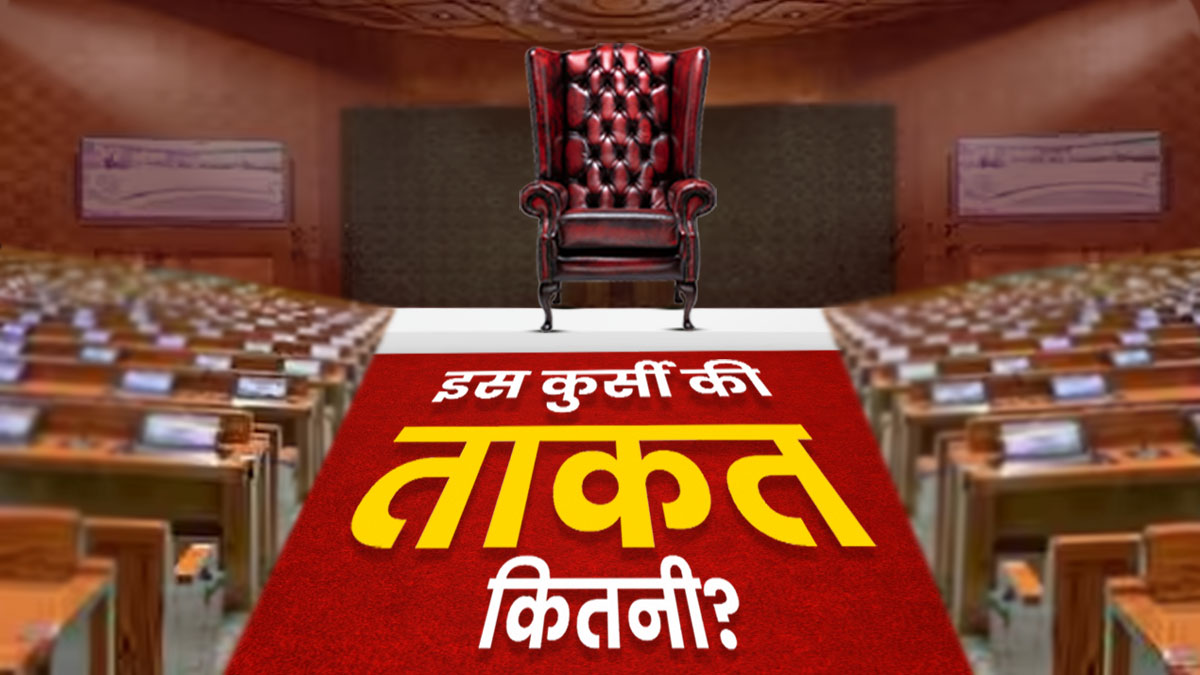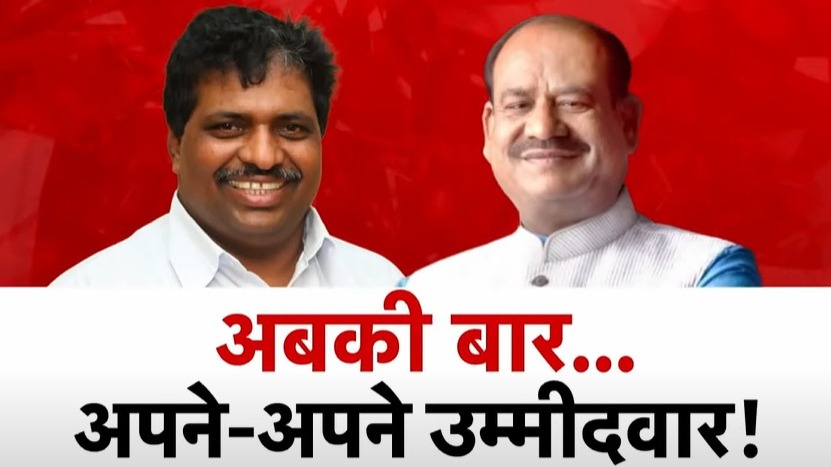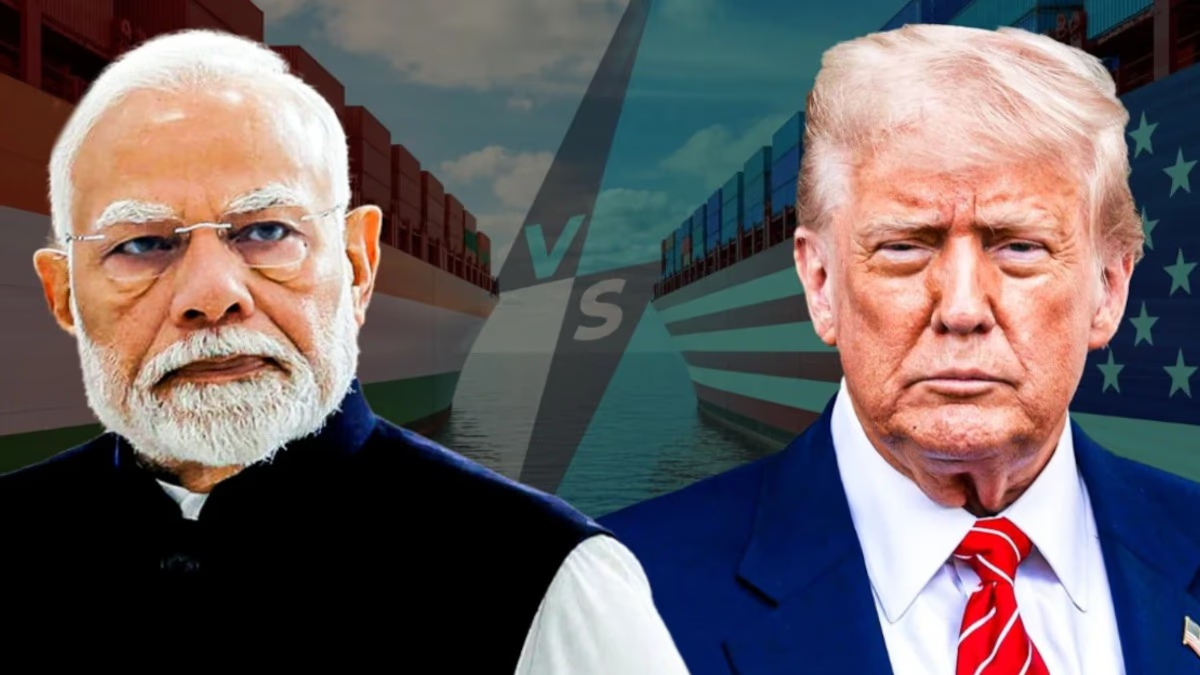Following the recent Lok Sabha elections, the Parliament session has commenced. The oath-taking ceremony for MPs is underway. At the same time, the political turmoil between the NDA and INDIA alliance over the Speaker position of the Lok Sabha continues. NDA has once again nominated Om Birla from Kota as the candidate for the Speaker, while the Congress-led INDIA block has declared K. Suresh as their choice. Tomorrow, Wednesday, will see the selection via voting of one among the two nominees.
Let's now delve into the power invested in the position for which Congress is prepared to break tradition. We'll also look at the procedure for selecting a Speaker and review the significance and related records of the role in the lower house of Parliament sequentially.
How is the Speaker elected?
Both the Speaker and the Deputy Speaker in the Lok Sabha are selected by a simple majority of the members present and voting. A simple majority implies that the candidate who secures more than 50% of the votes from the MPs present at that time is chosen as the Lok Sabha Speaker. Currently, there are 542 MPs in the Lok Sabha, with one seat vacant following Rahul Gandhi's resignation from Wayanad. Therefore, out of 542 seats, the NDA holds 293. The halfway mark is 271, which signifies that the BJP-led NDA has a majority in the house and is not anticipated to face any challenge in electing their preferred Speaker.
What does the Lok Sabha Speaker do?
Let's understand the responsibilities of the Speaker. As the presiding officer of the house, the Speaker steers the house's proceedings, deciding if a bill should be considered as a Money Bill or not. Ensuring discipline and decorum in the house is also among the Speaker's duties. Moreover, the Speaker has the authority to suspend members as a disciplinary measure for unruly behavior. Any proposals requiring house approval, such as a no-confidence motion, adjournment motion, or censure motion, also necessitate the Speaker's consent. The Speaker also makes decisions concerning the list of matters to be discussed during sessions.
It is the President who decides the date for the election of the Speaker. All comments and speeches made by Lok Sabha members are addressed to the Speaker. The Lok Sabha Speaker also presides over joint sittings of both houses of Parliament and is considered equivalent to the Rajya Sabha chairman in the house's proceedings.
What is the procedure for removing the Speaker?
According to the order of precedence, the Lok Sabha Speaker is positioned at the sixth place, equivalent to the Chief Justice of India. The Speaker is accountable to the house, with the Speaker and Deputy Speaker removable through a motion passed by a majority of house members. The President nominates the Lok Sabha Speaker based on nominations.
It's notable that before proceeding to the Rajya Sabha for deliberation, all bills passed by the Lok Sabha must be signed by the Speaker. If a bill receives tie votes in the house, the Speaker's vote becomes decisive.

Source: aajtak
It's not the first time the Speaker has been up for election
By presenting a candidate, Congress has broken a long-standing tradition. Excluding the first Lok Sabha session, the Speaker has always been chosen unanimously. In the previous ten years after the Modi government, the Speaker was also elected by consensus. Only once before now has there been an election for the Speaker in the country.
The election for the Speaker of the first Lok Sabha took place on 15 May 1952. The ruling party's candidate, G.V. Mavalankar, was opposed by the opposition's nominee, Shankar Shantaram More. Mavalankar won with 394 votes in favor and 55 against, thus becoming the first Lok Sabha Speaker.
Upon election as the Speaker, an MP resigned from his party
In the annals of India's democratic history, there have been unique moments. One such instance occurred when an MP elected as Lok Sabha Speaker resigned from his political party. Neelam Sanjiva Reddy was the only Speaker who formally resigned from his party post-election, believing that the Speaker belongs to the entire house and should not be partisan. With this principle, he left his political party.
The only Speaker to become President
An intriguing fact is that Neelam Sanjiva Reddy was the only Lok Sabha Speaker elected unopposed as President. On 26 March 1977, he was chosen as Speaker unanimously, but resigned on 13 July 1977, as he was being nominated for the presidency, and later became the sixth President without opposition.
An opposition MP who became Lok Sabha Speaker
In the 11th Lok Sabha, there came a time when an opposition MP was unanimously elected as Speaker. Purno Agitok Sangma was such an MP. He became the Speaker in 1996. In the 2012 presidential elections, Sangma was fielded by AIADMK and Biju Janata Dal as their candidate, later supported by BJP. However, on 22 July 2012, Pranab Mukherjee won the presidential election, leaving Sangma defeated.
In the matter of the first female Lok Sabha Speaker, the Congress, in 2009, elected Meira Kumar, the MP from Sasaram, as Speaker, where she served from 4 June 2009 to 11 June 2014. Following her tenure, the BJP government also provided the second female Speaker, Sumitra Mahajan.




